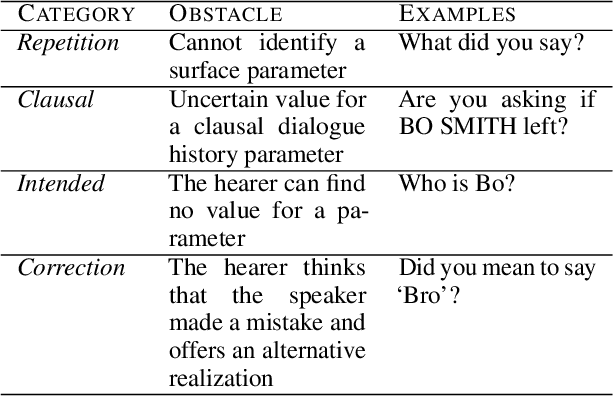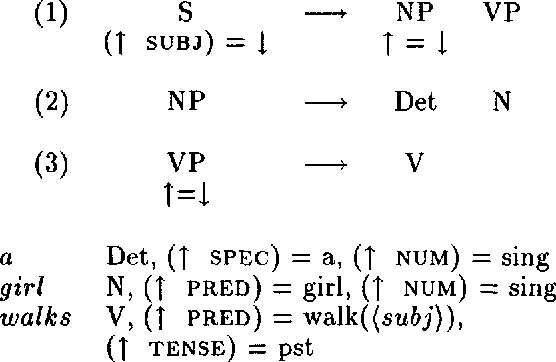Patrick Blackburn
INRIA Lorraine - LORIA
A recipe for annotating grounded clarifications
Apr 18, 2021



Abstract:In order to interpret the communicative intents of an utterance, it needs to be grounded in something that is outside of language; that is, grounded in world modalities. In this paper, we argue that dialogue clarification mechanisms make explicit the process of interpreting the communicative intents of the speaker's utterances by grounding them in the various modalities in which the dialogue is situated. This paper frames dialogue clarification mechanisms as an understudied research problem and a key missing piece in the giant jigsaw puzzle of natural language understanding. We discuss both the theoretical background and practical challenges posed by this problem and propose a recipe for obtaining grounding annotations. We conclude by highlighting ethical issues that need to be addressed in future work.
Generating models for temporal representations
Oct 15, 2007Abstract:We discuss the use of model building for temporal representations. We chose Polish to illustrate our discussion because it has an interesting aspectual system, but the points we wish to make are not language specific. Rather, our goal is to develop theoretical and computational tools for temporal model building tasks in computational semantics. To this end, we present a first-order theory of time and events which is rich enough to capture interesting semantic distinctions, and an algorithm which takes minimal models for first-order theories and systematically attempts to ``perturb'' their temporal component to provide non-minimal, but semantically significant, models.
A specification language for Lexical Functional Grammars
Mar 03, 1995
Abstract:This paper defines a language L for specifying LFG grammars. This enables constraints on LFG's composite ontology (c-structures synchronised with f-structures) to be stated directly; no appeal to the LFG construction algorithm is needed. We use L to specify schemata annotated rules and the LFG uniqueness, completeness and coherence principles. Broader issues raised by this work are noted and discussed.
 Add to Chrome
Add to Chrome Add to Firefox
Add to Firefox Add to Edge
Add to Edge